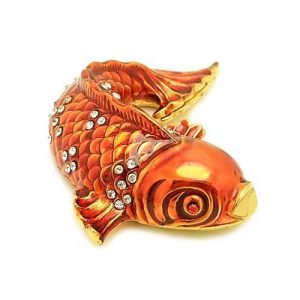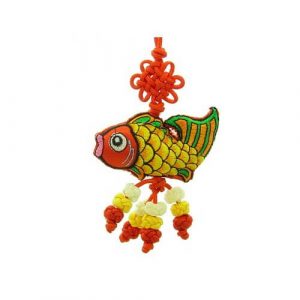
While goldfish are the most popular feng shui fish for indoor aquariums, koi are the preferred fish for outdoor ponds.
That isn’t to say they are kept solely outside the house.
Even though many people mistakenly believe that koi fish are related to goldfish due to the brilliant gold that some of them come in, the truth is that they are a type of carp fish.
The koi fish is a hybrid of goldfish and regular carp, with a colour variety that resembles goldfish and a body that resembles a regular carp. Maybe I’m more inclined to the latter.
Legend of the Koi Fish (carp)

Its Mandarin name is, and it is pronounced Li Yu (carp fish). The carp has many references in Chinese folklore, although the word koi comes from Japan.
The most famous of these is about a fish swimming upstream against the Yellow River’s current and up the mountains to reach the Dragon Gate. Then, as a reward for perseverance, becoming a dragon.
It’s no surprise that the koi fish is a powerful symbol of perseverance, patience, and commitment in the face of adversity. They can also promote harmony and are good luck symbols in general.
They’re also well-known as powerful symbols of academic achievement.
Paintings of fish frequently depict the above story of the dragon gate.
A fisherman presenting a carp to a woman and her child is another popular depiction. This represents a wealth and status blessing.
Keeping Koi Fish( Carp) at home
When it comes to indoor aquariums, goldfish are preferred over koi, as previously stated. Even the Arowana or flowerhorn can get in the way.
This is partly because koi’s true beauty can only be appreciated when they’re in a group. A single koi fish will appear strange and unusual. However, when it comes to indoor ponds, koi is still the most popular choice among homeowners.
As they can grow to be quite large, keeping a large number of them in a small indoor fish tank is not a good idea. They are, however, the ideal fish for ponds, whether indoors or out. This is because kois are stunning from above.
We can fully appreciate its graceful movements from the top as they swing their tails from side to side, not just because of the colour patches on their bodies.
Ponds, on the other hand, are thought to be larger than fish tanks. This extra room is required to keep a healthy and harmonious community of fish in the same living space.
In outdoor ponds, other fishes are simply not as hardy. Considering that many koi fish are said to have lived (and are still living) for over 100 years, Do you really want your lucky charms to spend those years in a claustrophobic environment like a fish tank?
You should avoid having a koi fish with a single red dot on its head because it is considered unlucky, especially for school-aged children.
More than a symbolization
There should be no doubt that in symbolic feng shui, koi fishes are symbols of good fortune. They can, however, play an important role in the use of water to improve feng shui at home. In feng shui, water is associated with wealth luck, as we all know. Water features such as aquariums and fish ponds are frequently placed to enhance wealth luck. Live fish in these water features help to create more yang energy, which is important for correctly tapping into that auspicious energy. Finally, make sure the pond or aquarium is in the correct location. Otherwise, you risk harvesting negative energy rather than harnessing positive energy.
